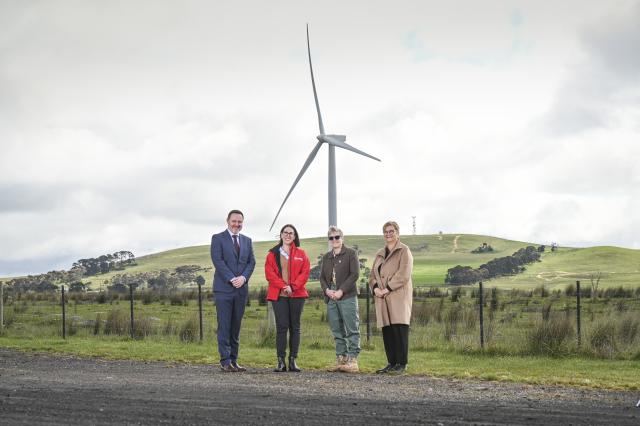A three-way partnership that aims to use 100 per cent renewable electricity and produce net zero emissions has secured a power purchase agreement (PPA) with a local wind farm.
The Barwon Renewable Energy Partnership (B-REP) of Barwon Water, Barwon Health and GeelongPort recently entered a PPA with the Mount Gellibrand wind farm near Birregurra for the provision of 68 gigawatt hours a year of renewable electricity.
ACCIONA Energia’s Mount Gellibrand Wind Farm has been operating since 2018 and has 44 turbines, each with a capacity of 3 megawatts.
The 10-year agreement will see the renewable electricity produced at the farm and sent to the grid allocated to the three organisations, offsetting the energy used at their facilities.
Barwon Water Managing Director Tracey Slatter said that previously, more than 80 per cent of Barwon Water’s emissions came from the use of electricity sourced from the grid.
“The turbines at Mount Gellibrand Wind Farm will deliver Barwon Water 45 gigawatt-hours a year of renewable electricity – more than 100 per cent of our total electricity needs in an ‘average Year’,” she said.
GeelongPort Chief Executive Officer Brett Winter said investing in clean energy opportunities was essential for tackling climate change and GeelongPort was excited to be partnering with leading organisations such as Barwon Water and Barwon Health to support the development of renewable energy facilities in our region.
“This PPA and the use of 100% renewable electricity is a key component of our emissions reduction strategy and reduces our reliance on carbon offsets whilst maintaining our carbon neutral status,” he said.
Barwon Health Chief Executive Frances Diver said it was an exciting and innovative project that would help Barwon Health meet emission reduction targets and demonstrate the benefits of regional collaboration across the public sector.
“The agreement will provide Barwon Health with 15 gigawatt hours of clean electricity annually for the next decade, reducing our total greenhouse gas emissions by around 70 per cent or 14,700 tonnes per year,” she said.









